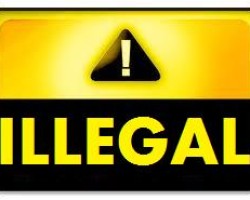
A homeowner who is unable to find a local address or phone number for their trustee should file a complaint with the Attorney General’s Office online at http://atg.wa.gov/FileAComplaint.aspx. However, this will not stop a foreclosure sale. Homeowners should also contact a housing counselor or an attorney.
Washington is a “non-judicial foreclosure” state, which means that a lender can proceed directly to selling a home at public auction without first filing a lawsuit. This process was created by the state Legislature. Although lenders may foreclose in court in Washington, they almost always choose non-judicial foreclosures.
If a trustee is unwilling to stop a foreclosure, then the homeowner must file a lawsuit under the Deed of Trust Act and obtain a court order before the sale. Bankruptcy may stop or delay a foreclosure but it may also put the homeowner in a worse position. Legal representation is essential to a successful case, McKenna said.
BORROWER RESOURCES:
- If you believe unlawful activity has occurred in regard to your mortgage, you should speak with an attorney. A homeowner may file a suit to challenge a foreclosure, but they must do so prior to the foreclosure sale.
- If you are unable to afford a lawyer, you should contact the Washington State Homeownership Information Hotline at 1-877-894-4663 (HOME) for referral to the Home Foreclosure Legal Aid Project. The hotline can also refer to you to a free, state-approved housing counselor.
- Te Attorney General’s Office cannot stop a foreclosure or provide individuals with legal advice, as the office is barred by law from representing private citizens.
- Homeowners should read the Washington Foreclosure Prevention Resources Guide, provided by the Seattle-King County Asset Building Collaborative Foreclosure Prevention Team and recommended by the Attorney General’s Office and the Washington State Department of Financial Institutions.
- Additional resources can be found at www.atg.wa.gov/foreclosure.aspx.
Source: http://atg.wa.gov
[ipaper docId=52463517 access_key=key-28tozjml9i4fdsxkmvj8 height=600 width=600 /]
© 2010-19 FORECLOSURE FRAUD | by DinSFLA. All rights reserved.



The trustee must also be a signatory to the loan otherwise they have zer0 authority to do anything.
“A trustee is a person whose name appears on the legal title to property held in the trust. For instance, if the trust includes real estate property, the deed to that property will identify the trustee as the grantee, or current owner, of the property. However, a trustee only has legal title because the trustee’s title is always subject to the provisions in the underlying trust agreement. The beneficiaries identified in that trust agreement own equitable title to the trust property. Equitable title includes the right to all benefits from the property.
When a trustee signs a document without including the designation “as trustee,” the trustee provides no notice of the trustee’s limited legal capacity in that transaction. On the other hand, including the designation “as trustee” puts the entire world on notice that the signer of the document is acting in a limited legal capacity and not personally involved in the transaction.
If a trustee signs a document with the intent to act in her capacity as trustee, but without including any designation of “as trustee” next to her signature, the trustee may unintentionally become personally involved in the transaction. For example, if the trustee intends to enter into a mortgage loan agreement on behalf of the trust, but she fails to designate her signature as a trustee’s signature, then she may be held personally liable for the balance due on the mortgage loan.”
“A trustee of an irrevocable trust has various duties and legal responsibilities; they must handle the trust’s affairs with honestly and integrity.”
The trustee is supposed to be impartial. They have a fiduciary duty to act fairly and protect the title from fraud. Obviously they are siding with the banks which is a breach of fiduciary duties and grounds for removal. It “IS” just that simple!